

Blogs
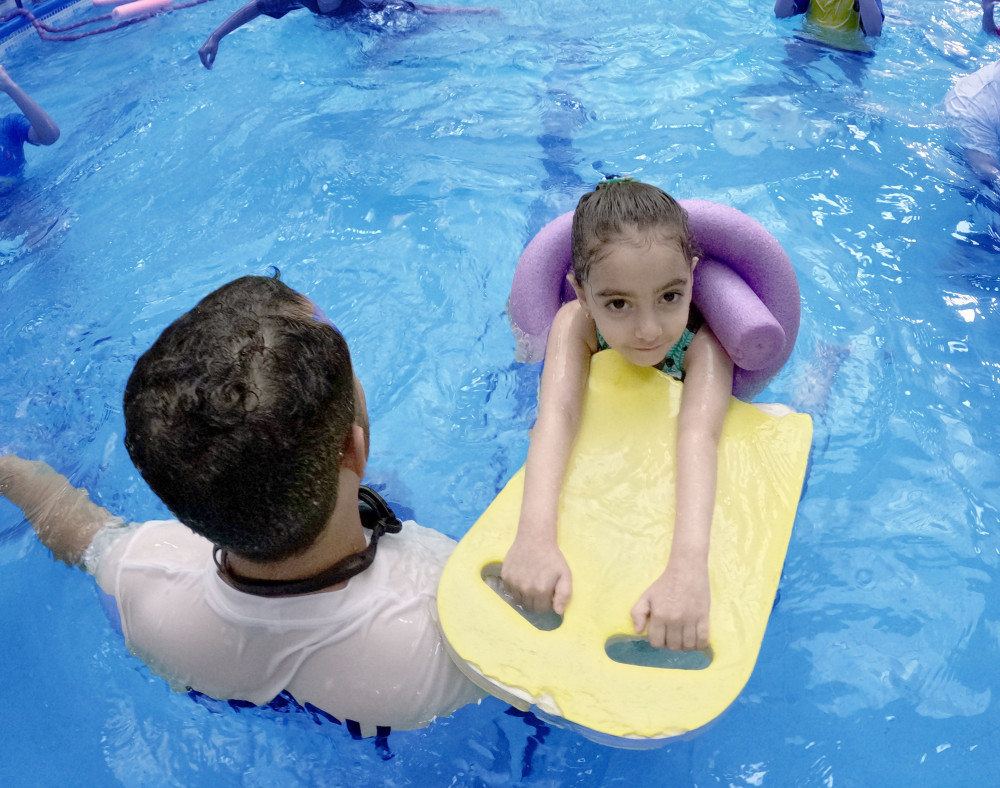
Small Kids Swimming Skills and Understanding the Water Waves
2024-07-17 - swimmingIntroduction
Teaching your child to swim at an early age is one of the best gifts you can give them. Not only does it ensure their safety around water, but it also provides numerous physical and mental health benefits. Let's dive into the world of small kids swimming skills and understanding the water waves.
Basics of Water Waves
Water waves are a natural phenomenon that occur when energy moves through water, causing it to move in a circular motion. This movement creates waves, which can vary in size and strength. For small kids, understanding these waves is crucial as it affects their swimming experience.
How Waves Affect Swimming
Waves can influence how easily a child can swim and maintain their balance in the water. Gentle waves can help kids learn to navigate through water, while larger waves can pose a challenge. Teaching kids to read and respond to waves can improve their swimming skills and confidence.
Ideal Age for Starting
Many experts recommend starting swimming lessons for children as young as six months. At this age, babies can be introduced to the water in a safe and controlled environment, helping them become comfortable and confident as they grow.
Signs Your Child is Ready
Look for signs that your child is ready for swimming lessons, such as an interest in water play, ability to follow simple instructions, and a general comfort with being in the water. Every child is different, so it's important to consider their individual readiness.
Importance of Supervision
No matter how skilled a child becomes, supervision is crucial whenever they are in or around water. Always keep a close eye on your child and never leave them unattended, even for a moment.
Safety Equipment
Equip your child with appropriate safety gear, such as swim vests or floaties, especially in open water or deep pools. This equipment provides an extra layer of protection and can help build your child's confidence in the water.
Fun Water Activities
Incorporate fun water activities to make learning enjoyable. Games like "Simon Says" in the water or retrieving toys from the pool floor can make practice sessions more engaging and less intimidating for young swimmers.
Overcoming Fear of Water
It's normal for some kids to be afraid of water. Patience and gradual exposure can help overcome this fear. Start with shallow water activities and slowly progress to deeper areas as your child becomes more comfortable.
Breathing Techniques
Learning proper breathing techniques is essential for advanced swimming. Teach your child to take a deep breath and blow bubbles underwater, gradually working towards coordinating breathing with their strokes.
Stroke Development
As your child gains confidence, introduce different swimming strokes, such as freestyle, backstroke, and breaststroke. Focus on proper form and technique to build a strong foundation for future swimming success.
Water Games for Kids
Games like "Marco Polo" and "Sharks and Minnows" can help improve swimming skills while providing a fun and interactive way to practice. These games encourage movement and coordination in the water.
Activities to Practice at Home
You don't always need a pool to practice swimming skills. Activities such as practicing arm movements and breathing techniques in the bathtub can help reinforce lessons learned during swimming classes.
How Parents Can Help
Parents play a crucial role in their child's swimming journey. Participate in lessons, provide encouragement, and practice swimming skills together. Your involvement can boost your child's confidence and motivation.
Encouraging Practice
Make swimming practice a regular part of your routine. Visit the pool regularly and encourage your child to practice their skills. Consistent practice helps reinforce learning and improve proficiency.
Dealing with Resistance
It's common for children to resist swimming lessons at times. Address their concerns, provide reassurance, and make lessons as enjoyable as possible. Sometimes, a break or a different approach can help rekindle their interest.
Handling Setbacks
Setbacks are a natural part of learning. Encourage your child to persevere and celebrate small victories along the way. Patience and positive reinforcement can help them overcome challenges and continue progressing.
Inspirational Stories
Hearing about other kids' successes can be motivating. Share stories of children who learned to swim early and the positive impact it had on their lives. These stories can inspire your child to keep pushing forward.
Lessons Learned
Reflect on the lessons learned from these success stories. Emphasize the importance of persistence, practice, and a positive attitude in achieving swimming goals.
Conclusion
Starting swimming lessons at a young age can have a profound impact on a child's life. From understanding water waves to mastering swimming skills, the journey is filled with opportunities for growth and enjoyment. Encourage your child to dive into the world of swimming and watch them flourish.
.
Other Blogs

Mind – Nurture It for Reflecting the Healthier Version of You
2022-12-20 - Mental Health
Water - The Divine Portion that Maintain Life
2022-12-19 - Water
Its time to Wake Up!
2022-12-19 - Lifestyle
Significance of Leisure Activity
2022-12-21 - Mental Health
Beginner Tips for Mastering the Art of Swimming
2022-12-21 - Swimming
Significance of Safety Measures for Enjoyable Swimming Lessons
2022-12-24 - Swimming
Proper Nutrition for Active Swimmers
2022-12-24 - Food Habits
Swimming has a Long History Dating Back to Ancient Civilizations
2022-12-26 - Swimming
Best Beach Activities to try out
2022-12-26 - Beach
Affordable Swimming Classes in Sharjah
2022-12-24 - Swimming
Swimming: An All-Inclusive Fun Package for Children Promoting their Physical, Mental, and Social Development
2022-12-27 - Swimming
Swimming Gears – Equip and Train Yourself to Swim Confidently
2022-12-27 - Swimming
Be a Karateka; Teach Yourself the Superior Skills of Discipline, Self-Control, and Respect
2022-12-29 - Martial Arts, Karate
Famous Swimmers and Their Inspirational Stories
2022-12-29 - Martial Arts, Karate
Swimming Events and Competitions Offers Swimmers with a Rewarding and Enriching Experience
2023-01-02 - Martial Arts, Karate
Believe It or Not, They are Too Good in Martial Arts
2023-01-04 - Martial Arts, Karate
Mental Skills Developed through Karate Training
2023-01-05 - Martial Arts, Karate
Karate In Its Various Forms
2023-01-07 - Martial Arts, Karate
Get To Know the Karate Terms – Part 1
2023-01-07 - Martial Arts, Karate
Get To Know the Karate Terms – Part 2
2023-01-09 - Martial Arts, Karate
Swimming Empowers Students with Skills to Attain Higher Levels in Academics
2023-01-10 - Swimming
Water Based Exercise Can Be a Fun and Stimulating Experience for Stroke Patients
2023-01-12 - Swimming
Swim Workouts for Having a Lean, Muscular “Swimmer’s Body”
2023-01-14 - Swimming
Adopt the FITT PRINCIPLE for an enjoyable and successful swimming experience
2023-01-16 - Swimming
Dance In Water Like Beautiful Mermaids Performing Water Ballets
2023-01-18 - Swimming
Swimming kids and teacher with friendly environment
2023-08-13 - Swimming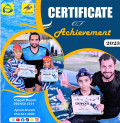
Achievement certificate of swimming level-2 congratulation
2023-08-15 - Swimming
Producing confidence to new coming kids for swimming
2023-08-15 - Swimming
Expert Instructor makes swimming easy for kids
2023-08-17 - Swimming
Talent of kids after swimming with happness
2023-08-19 - Swimming
Why gymnastic steps is more easy for kids
2023-08-20 - Swimming
Kick-Boxing workout for kids
2023-08-21 - Swimming
Kids will develop strength, flexibility, coordination, and cardiovascular with karate
2023-08-22 - Swimming
Kids happy mood after swimming
2023-08-23 - Swimming
Gymnastics is a passion for you and your kids!
2023-08-24 - Swimming
Emphasize the importance of teamwork for football
2023-08-26 - foôtball
Swimming offers a wide range of benefits for women, both physical and mental
2023-08-29 - Swimming
Swimming different techniques for kids
2023-08-27 - Swimming
Private swimming for a family can be a wonderful idea for recreation, exercise, and relaxation
2023-08-30 - Swimming
All necessary facilitates available for swimmer
2023-08-28 - Swimming
Introducing a 2-year-old baby to swimming can be a rewarding and fun experience
2023-08-31 - Swimming
Small Kids Swimming with Confidence a Guide for Parents
2023-09-02 - Swimming
Swimming center views for kids and parents
2023-09-03 - Swimming
Different Activities for Kids
2023-09-04 - Swimming
Creating an Inclusive Swimming Experience for kids
2023-09-05 - Swimming
Different swimming actions techniques, benefits, and tips
2023-09-06 - Swimming
Swimming for Kids in a Friendly Environment
2023-09-07 - Swimming
Transportation for Kids picks and drop facilities
2023-09-09 - Swimming
Healthy Foods for Swimming Kids, Fueling Their Success in the Pool
2023-09-10 - Swimming
Special Offer for Swimming with Low Price
2023-09-12 - Swimming
Football Coaching Classes for Kids
2023-09-11 - foôtball
Now the perfect time to learn Karate
2023-09-13 - karate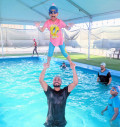
Swimming Jumping Skills for Kids with Full Confidence
2023-09-14 - swimming
Swimming is wonderful gaming for kids and provide health
2023-09-16 - karate
A scene where kids are having fun with boat before swimming
2023-09-17 - swimming
Gymnastics is a fantastic sport for kids to develop strength
2023-09-18 - gymnastic
The Joy of Swimming: Creating Wonderful Moments for Kids
2023-09-19 - swimming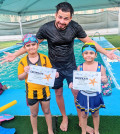
Swimming Level 1 Starfish Certificate Achievement: Dive into Success
2023-09-20 - swimming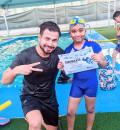
Swimming Level 2 Swordfish Certificate Achievements
2023-09-21 - swimming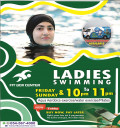
Ladies Swimming Skills: Expert Instruction for a Splashing Good Time
2023-09-23 - swimming
Adults can benefit greatly from taking the plunge into the refreshing waters of a pool
2023-09-24 - swimming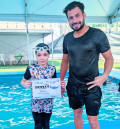
Achieve Your Swimming Goals with the Level 3 Manta Ray Certificate
2023-09-25 - swimming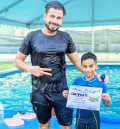
Achieving the Swimming Level 4 Crocodile Certificate: A Proud Accomplishment
2023-09-26 - swimming
The Kids Swimming Level 5 certificate is recognition of a child's advanced swimming abilities
2023-09-27 - swimming
Children will have different levels of swimming abilities
2023-09-28 - swimming
Now let's start Karate Kicks: Nice Steps for Learning
2023-09-30 - karate
Swimming is not only a valuable life skill but also an enjoyable and healthy activity for children
2023-10-01 - swimming
Kids Swimming Warnings and Auctions
2023-10-02 - swimming
Swimming is good for heart: A healthy heart is essential for a long and fulfilling life
2023-10-04 - swimming
Karate, the ancient martial art, provides the perfect avenue for beginners to dive into a world of personal growth and self-defense
2023-10-05 - karate
Few activities can match the holistic benefits of swimming
2023-10-06 - swimming
Exploring the World of School Activities for Kids
2023-10-06 - activites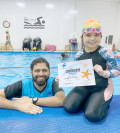
Kids Swimming with a Friendly Environment and Enjoying
2023-10-08 - swimming
Infant Swimming: Follow Up with Happy Movement
2023-10-09 - swimming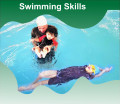
Swimming can be an excellent hobby and workout for people of all ages and fitness levels
2023-10-11 - swimming
Swimming Tips: How to Relax in Backstroke
2023-10-12 - swimming
Needs Tips for Kids Karate
2023-10-13 - karate
Swimming: Supporting Material for Kids
2023-10-14 - swimming
Gymnastics is a fantastic way to keep kids active and healthy
2023-10-18 - gymnastic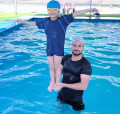
Swimming is an excellent full-body workout
2023-10-15 - swimming
Great Start How Swimming Motivates Kids to Build Confidence
2023-10-19 - swimming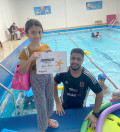
A fantastic way for kids to build their confidence
2023-10-16 - swimming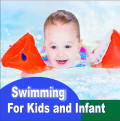
Infant Swimming: A Joyous Experience for Parents and Babies
2023-10-20 - swimming
Looking for Karate Parents: How to Become Active in Your Child's Journey
2023-10-21 - karate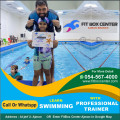
Swimming inside the Water: Enhancing Your Breathing Technique
2023-10-22 - swimming
Karate for Kids Can Be a Source of Joy for Parents
2023-10-23 - karate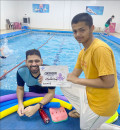
Looking for Swimming Classes in Sharjah and Ajman
2023-10-26 - swimming
Learning the art of kickboxing can provide children with numerous benefits
2023-10-27 - kick-boxing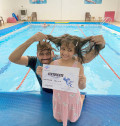
Swimming for Kids: A Fun and Beneficial Activity
2023-10-29 - swimming
Swimming Kids: Building Confidence like No Other Activity
2023-10-30 - swimming
Kids Different Types of Drawing Activities
2023-11-01 - drawing
Kids Learning Quran Kareem and Prayer
2023-11-03 - Islamic Education
All Activities Explained: Swimming, Karate, Gymnastics, and Kickboxing
2023-11-04 - All activities
Swimming Instructor Tips for Teaching Kids: Making Learning Fun and Safe
2023-11-05 - swimming
Swimming Inside the Water with Long Dive
2023-11-06 - swimming
Lady Swimming Instructor for Kids with More Experience
2023-11-08 - swimming
Karate is important for kids: How to Start
2023-11-10 - karate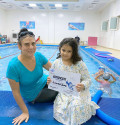
Swimming Achievement for Kids: What It Means and How They Can Succeed
2023-11-11 - swimming
Benefits of Swimming for Kids and Babies
2023-11-12 - swimming
Winter Camp for Kids: A Fun and Educational Escape
2023-11-13 - winter camp
Kickboxing for Small Kids: Boosting Confidence One Punch at a Time
2023-11-15 - kick-boxing
Kids Feel Gymnastics as Fun and Get More Interested
2023-11-16 - gymnastic
Swimming Lesson for Kids: A Dive into Confidence and Skill Mastery
2023-11-17 - swimming
Karate for Kids: Unleashing Potential in a New Branch
2023-11-18 - karate
Swimming, karate, gymnastics, kickboxing, and kids' activities:
2023-11-19 - kids activites
Swimming is Become the Passion of Kids if They Have Confidence
2023-11-20 - swimming
Swim Like a Fish: How to Learn Kids
2023-11-22 - swimming
Swimming in the Winter Season in Ajman and Sharjah
2023-11-23 - swimming
Kids Mostly Interested in Martial Arts Karate
2023-11-24 - karate
Physically Fit Girls in Kickboxing Breaking Barriers and Building Strength
2023-11-25 - kick-boxing
Gymnastic Steps “ Pike” for Kids
2023-11-26 - gymnastic
Private Swimming for Kids Unlocking the Joy of Learning to Swim
2023-11-27 - swimming
Karate for kids learn the front kick
2023-11-29 - karate
Kickboxing for Kids Learn Hook Moves, How to Learn
2023-12-01 - kick-boxing
Kids Talented Swimming Skills Looking Healthy and Smart
2023-12-06 - swimming
Gymnastics for Kids Let's Learn Handstand method
2023-12-07 - gymnastic
Popular Swimming Pool in Ajman
2023-12-08 - swimming
Karate for kids lets learn roundhouse kick
2023-12-09 - karate
Kickboxing for girls to make healthier: A Fun Path to Fitness
2023-12-10 - kick-boxing
Kids Winter Camp Activities in Ajman
2023-12-11 - winter camp
How To Encourage Your Child While They Learn To Swim
2023-12-13 - swimming
Gymnastic for kids lets learn pike step today
2023-12-14 - gymnastic
Babies Swimming in Ajman with Professional Instructor
2023-12-15 - swimming
Let's Learn Side Kick in Karate
2023-12-16 - karate
Students Can Enroll in Classes for Rhythmic Gymnastics
2023-12-17 - gymnastic
Kids Swimming Inside Water Putting Glasses to Their Eyes
2023-12-18 - swimming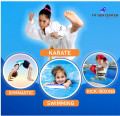
Kids Activities Exploring the World of Karate, Swimming, Gymnastics, and Kickboxing
2023-12-20 - kids activites
Gymnastics for Kids Let's Learn the Split Step
2023-12-21 - gymnastic
Kickboxing for Kids: Let's Learn the Straight Kick
2023-12-22 - gymnastic
Karate for Let's Learn Smell My Fanny
2023-12-23 - karate
For beginners, diving into the vast world of swimming might seem daunting, but fear not
2023-12-24 - swimming
Kickboxing for Kids Learning Defense Steps
2023-12-24 - kick-boxing
Kids Swimming Learn the Butterfly Stroke with Joy
2023-12-27 - swimming
Winter swimming offers more than just a refreshing dip
2023-12-28 - swimming
Gymnastic Drills for Beginners Unlocking the Foundations of Athletic Excellence
2023-12-30 - gymnastic
Kids Swimming in the Winter Camp Last Day
2023-12-31 - swimming
Kids Karate Learn Straight Kick
2024-01-03 - karate
Swimming for Kids Together with Enjoying
2024-01-04 - swimming
The Essence of Kids Karate Kokato Geri Learn
2024-01-06 - karate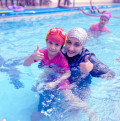
Swimming with Lady Trainer ! Kids Learning Quickly
2024-01-08 - swimming
Kickboxing for boys and girls kids is not just a physical activity
2024-01-10 - kick-boxing
Gymnastics program designed to strengthen kids' muscle control, flexibility, and balance
2024-01-11 - gymnastic
Swimming Skills for Kids like a Fish a Comprehensive Guide
2024-01-12 - swimming
Swimming for Small Kids Creating a Safe and Friendly Environment
2024-01-15 - swimming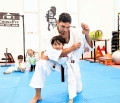
The Front Kick Mae Geri for Kids
2024-01-17 - karate
Swimming for Small Kids to Get More Confidence
2024-01-18 - swimming
Karate involves dynamic movements, enhancing a child's physical fitness and coordination
2024-01-19 - karate
Gymnastics for Kids Potential of Playful Exercise
2024-01-20 - gymnastic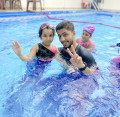
Kids Swimming Dive into a Joyful Learning Experience
2024-01-21 - swimming
Kickstarting Confidence Kickboxing for Kids Learning Skills
2024-01-22 - kick-boxing
Baby Swimming Skills with Professional Trainer
2024-01-24 - swimming
Karate for Kids Learn Ushiro Tobi Geri
2024-01-25 - karate
Swimming Skills with Different Techniques for Kids
2024-01-26 - swimming
Gymnastics for Kids in Fit Box Center
2024-01-27 - gymnastic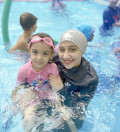
Qualified instructor has the knowledge and skills to teach proper swimming techniques
2024-01-28 - swimming
Kickboxing for Kids an Exciting Journey Filled with Valuable Life Lessons
2024-01-29 - kick-boxing
Small Kids Easily Do Karate Steps UAE
2024-01-31 - karate
Swimming Backstroke and Sidestroke for Adults
2024-02-01 - swimming
Small Kids Swimming Skills initial steps
2024-02-03 - swimming
How to do a Bridge While Lying on Their Back in Gymnastics
2024-02-04 - gymnastic
Swimming for Kids as Exercise
2024-02-05 - swimming
Looking Smart Kids Playing Martial Karate
2024-02-07 - karate
Infant Swimming Encouraging Your Baby's Water Adventures
2024-02-08 - swimming
Adult Swimming Dive into a Healthy Lifestyle
2024-02-09 - swimming
Gymnastics for Small Kids to Motivate and Encourage
2024-02-10 - gymnastic
Let's Learn Butterfly Skills in Swimming
2024-02-11 - swimming
Kickboxing Let's Learn Hook
2024-02-12 - kick-boxing
Swimming for Kids Happy Movements
2024-02-14 - swimming
Unlocking the Power of Karate Learning for Kids
2024-02-15 - karate
Swimming Success Great Steps for Kids to Master Swimming Skills
2024-02-16 - swimming
Effective Tips for Kids Karate Learn Leg Movements
2024-02-17 - karate
Gymnastics for Kids How to Learn Splits steps
2024-02-18 - gymnastic
Ladies Private Swimming with Ladies Instructor
2024-02-19 - swimming
Improve Your Kids’ Physical Strength and Boost Their Self-Confidence in This Kickboxing Class!
2024-02-21 - kick-boxing
Swimming for Beginners Easy Steps for kids dive into pool
2024-02-22 - swimming
Introduction to Silhouette Karate Front Kick
2024-02-23 - karate
Gymnastics Performance Provides Athletes with a Strategic Advantage
2024-02-24 - gymnastic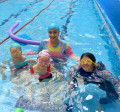
Swimming Strokes Choosing the Right Techniques
2024-02-25 - swimming
Punching Bag for Kids and Adults Kickboxing Punching Dummy
2024-02-26 - kick-boxing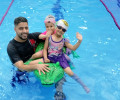
Regular swimming sessions contribute to overall physical fitness and can help prevent obesity and related health issues in children
2024-02-28 - swimming
Karate and Other Martial Arts Empowering Children for Life
2024-02-29 - karate
Swimming helps in developing strength, coordination, and muscle tone in children's growing bodies
2024-03-01 - swimming
Progressive Gymnastics Program for Under 6’s: A Holistic Approach for Boys and Girls
2024-03-02 - gymnastic
Swimming offers a full-body workout, engaging various muscle groups for kids
2024-03-03 - swimming
Kids Kickboxing Classes Cardiff Hangar Human Performance Centre
2024-03-04 - kick-boxing
Teaching Swimming to Small Kids a Comprehensive Guide for instructor
2024-03-06 - swimming
Children Martial Arts Fighters Starting Jumping
2024-03-07 - karate
Swimming Steps for Beginners and Small Baby
2024-03-08 - swimming
The butterfly stroke is renowned for its graceful yet dynamic movement
2024-03-09 - swimming
Learning Stretching’s in Gymnastics for Kids
2024-03-10 - gymnastic
Swimming Exercise for Kids Should Be Physical Fit
2024-03-11 - swimming
Kickboxing serves as an outlet for excess energy while promoting self-discipline and confidence
2024-03-13 - kick-boxing
Learning to perform a backflip in gymnastics is an exciting and rewarding experience for children
2024-03-14 - gymnastic
When you take a plunge into the pool, your heart rate increases, giving your cardiovascular system an excellent workout for kids
2024-03-15 - swimming
Karate for Kids Cultivating Professionalism
2024-03-16 - karate
Swimming Level Six Octopus Certificate achievement
2024-03-17 - swimming
Swimming Achievement Level Seven Certificate
2024-03-18 - swimming
Kids Kickboxing Mastering the Cross Stroke
2024-03-20 - kick-boxing
The split step is a fundamental gymnastics move that involves extending the legs into a split position
2024-03-21 - gymnastic
Backstroke and freestyle are fundamental swimming strokes that provide children with essential techniques
2024-03-22 - swimming
Learning the Punch Front in Karate
2024-03-23 - karate
Swimming Kids with a Happy Environment
2024-03-24 - swimming
Starfish is the introductory level of swimming lessons designed for beginners, both children and adults
2024-03-29 - swimming
Physical activity is crucial for children's overall health and well-being
2024-03-30 - gymnastic
Karate stands out as one of the most popular and widely practiced disciplines worldwide
2024-03-31 - karate
Begin by teaching children the basic arm movements and breathing techniques on water surface
2024-04-01 - swimming
Basic Cross Punching in Kickboxing Mastering the Fundamentals
2024-04-03 - kick-boxing
Small Kids Swimming Fun Activities inside the Pool
2024-04-04 - swimming
Attempting the side split it's important to maintain proper form and alignment
2024-04-05 - gymnastic
Drawing Activities for Kids to Learn Some Creative Steps
2024-04-06 - drawing
Swimming is a life-saving skill, and starting early can significantly reduce the risk of drowning accidents
2024-04-14 - swimming
The Skills of a Karate Instructor
2024-04-15 - karate
Starting Swimming Building Confidence and Familiarity with Water
2024-04-17 - swimming
Initial Steps to Learn Split in Gymnastics
2024-04-18 - gymnastic
Introducing Your Child to Swimming at a Young Age Why It Matters
2024-04-19 - swimming
Kickboxing within a playful and entertaining environment
2024-04-20 - kick-boxing
Girls Swimming with Lady Instructor Building Confidence and Skills in the Water
2024-04-22 - swimming
Kids karate learning the course of yellow belt
2024-04-24 - karate
Swimming for Small Kids A Fun and Healthy Exercise
2024-04-25 - swimming
Gymnastics A Fun Path to Physical Development for Kids
2024-04-26 - gymnastic
Dive into Adult Swimming Unlocking the Gateway to Physical Fitness and Exercise
2024-04-27 - swimming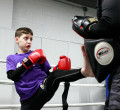
Kickboxing involves a combination of martial arts techniques and aerobic exercises
2024-04-28 - Kick-Boxing
Kids Swimming with a Friendly Environment and Enjoying Swimming
2024-04-29 - swimming
White Belt the Initial Step in Martial Arts Karate
2024-05-01 - karate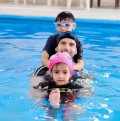
Swimming Skills for Small Kids is Easy to Learn
2024-05-02 - swimming
Muslim Ladies Swimming with Lady Swimming Coach
2024-05-03 - swimming
Baby Swimming Nurturing Infant Skills in the Water
2024-05-05 - swimming
Gymnastics for kids is more flexibility in body
2024-05-06 - gymnastic
Kids Karate Learning Initial Steps as a White Belt
2024-05-08 - karate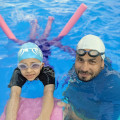
How to Learn Swimming Front Stroke Basic Steps
2024-05-09 - swimming
How to Learn Kickboxing Kick for Kids
2024-05-11 - Kick-Boxing
Swimming for Beginners Safety Tips and Essential Tools
2024-05-12 - swimming
Learning backstroke opens up a world of possibilities in the water
2024-05-13 - swimming
Standard Martial Arts Skills Karate
2024-05-15 - karate
Kids Summer Camp with Different Activities
2024-05-16 - swimming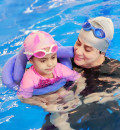
Kids Swimming with Safe and Clean Pool
2024-05-17 - swimming
Girls Gymnastics Mastering the Art of Flips
2024-05-19 - gymnasticSwimming Like Fish Building Kids' Swimming Skills
2024-05-20 - swimming
Karate Skills Learning Orange Belt for Kids
2024-05-22 - karate
Swimming Kids with Lady Trainer Special Classes
2024-05-23 - swimmingKickboxing Achievement after Competition
2024-05-24 - Kick-Boxing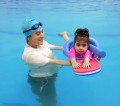
Very Safely Swimming Skills for Small Kids
2024-05-25 - swimming
How to Learn Flips in Gymnastics for Small Kids
2024-05-26 - gymnastic
Swimming Supporting Items for Beginner Kids
2024-05-27 - swimming
Karate Kids Make Very Smart Looking
2024-05-29 - karate
Kids Drawing Arts Learning with Other Activities
2024-05-30 - drawing
The ideal age for kids to start swimming lessons varies
2024-05-31 - swimmingKickboxing for Kids How to Defend in Competition
2024-06-01 - Kick-Boxing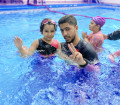
The summer season is the perfect time for kids to dive into swimming
2024-06-02 - swimming
karate offers a unique blend of physical activity, mental focus, and moral lessons
2024-06-03 - karate
Small Kids Introducing with Swimming to Produce Encouragement
2024-06-03 - swimming
Karate for kids has transitioned from merely a self-defense technique
2024-06-06 - karate
Learn Splits for Small Kids in Gymnastics
2024-06-07 - gymnastic
Swimming moves a person’s body through water
2024-06-08 - swimming
Summer Camp Activities for Kids in Fitboxcenter
2024-06-09 - Summer Camp
Provide Swimming Skills Environment to Kids to Learn
2024-06-10 - swimming
Ensure that the swimming environment is friendly, encouraging, and free from pressure
2024-06-12 - swimming
Kickboxing Fighting of Kids Huck and Kick
2024-06-13 - Kick-Boxing
Stech learning aids gymnasts by offering a structured approach to skill development and performance improvement
2024-06-14 - gymnastic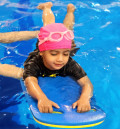
Small Kids Swimming Like Fish with a Safe Environment
2024-06-19 - swimming
Kids Learning Punch in Karate
2024-06-20 - karateSwimming for Kids Creating an Ideal Learning Environment
2024-06-21 - swimming
Kickboxing is an excellent cardiovascular workout that helps children build endurance and improve heart health
2024-06-22 - Kick-Boxing
Fit Box Center Premier Swimming and Kids Activities Center
2024-06-23 - swimming
Swimming and Other Activities in Summer Camp for Kids
2024-06-24 - Summer Camp
Split Learning When Playing Gymnastics for Kids
2024-06-26 - gymnastic
Kids Enjoying Swimming in School Summer Vacation
2024-06-27 - swimming
Hiking is a fantastic way to enjoy nature while getting a great workout
2024-06-28 - Summer Camp
Starting Martial Karate for Small Kids
2024-06-29 - karate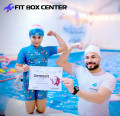
The primary goal of swimming certificates is to provide swimmers with a clear progression of skills
2024-06-30 - swimming
Participation in kickboxing can significantly boost a child's self-confidence
2024-07-01 - Kick-Boxing
Swimming provide exercise to kids in summer season
2024-07-03 - swimming
How Swimming Strengthens Kids' Bodies The Ultimate Guide
2024-07-04 - swimming
Kids One Side Splitting in Gymnastics
2024-07-05 - gymnastic
Girls Swimming with Lady Instructor in Summer Camp
2024-07-06 - swimming
Kickboxing involves punches kicks and footwork making it a full-body workout that challenges both the upper and lower body
2024-07-08 - Kick-Boxing
Summer is the perfect season to dive into the refreshing waters and make the most out of swimming with your kids
2024-07-11 - swimming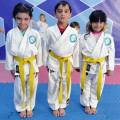
Earning your yellow belt in Karate is a significant achievement
2024-07-12 - karate
Swimming for Kids Overcoming Fear and Taking the First Steps
2024-07-13 - swimming
Swimming engages almost every muscle in your body
2024-07-14 - swimming
Gymnastics for Kids A Wonderful Performance
2024-07-15 - gymnastic
Small Kids Swimming Skills and Understanding the Water Waves
2024-07-17 - swimming
Kids Drawing Learning in Summer Camp
2024-07-18 - drawing
Gymnastics Course Level Kids Certificate Achievement
2024-07-19 - gymnastic
The front kick's simplicity and effectiveness make it an essential skill for any kickboxer especially beginners
2024-07-20 - Kick-Boxing
Swimming The Ultimate Sport Exercise and Workout
2024-07-21 - swimming
Before diving into splits, it's crucial to warm up the muscles to prevent injuries
2024-07-22 - karate
Swimming the All-Around Exercise for Everyone
2024-07-24 - swimming
The Sport of Gymnastics Tests an Athlete’s Strength, Grace, and Body Control
2024-07-25 - gymnastic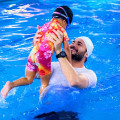
Swimming Environment for Kids to Swim Without Being Scared
2024-07-26 - swimming
Kickboxing Requires Hand-Eye Coordination, Spatial Awareness, and a Fast Reaction Time
2024-07-27 - Kick-Boxing
Regular swimming can lead to noticeable improvements in muscle strength
2024-07-28 - swimming
Karate classes offer a structured environment where kids can channel their energy positively
2024-07-29 - karate
Swimming Skills for Kids in Summer Camp School Vacation
2024-07-31 - swimming
Kids Learning Gymnastics in a Professional Way with Experienced Instructors
2024-08-01 - gymnastic
Swimming Talented Kids Learning Swimming Soon
2024-08-03 - swimming
Kids Kickboxing Building Strength and Health
2024-08-05 - Kick-Boxing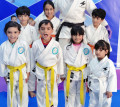
Karate with Emotionally Learning the Kids Yellow Belt
2024-08-07 - karate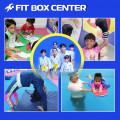
Summer Camp Activities for Kids in UAE
2024-08-08 - Summer Camp
The Benefits of Swimming for Kids A Group Experience with an Instructor
2024-08-09 - swimming
Gymnastics Skills Play Like a Game Exciting Kids Every Step of the Way
2024-08-10 - gymnastic
Swimming Skills for Girls with a Lady Instructor
2024-08-11 - swimming
Drawing is a gateway to the imagination. It allows kids to create entire worlds on a blank page
2024-08-12 - drawing
Swimming for Kids Providing Fitness Looking Smart, and Staying Fresh
2024-08-14 - swimming
Kids learning kickboxing from a young age a comprehensive guide
2024-08-15 - Kick-Boxing
The orange belt is an important milestone in a karateka's journey
2024-08-16 - karate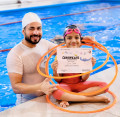
Kids Swimming Like Manta Ray Fish Level 3
2024-08-17 - swimming
4 Ways to Start Gymnastics for Kids
2024-08-18 - gymnastic
Beyond the physical advantages, kickboxing also fosters mental and emotional well-being
2024-08-19 - Kick-Boxing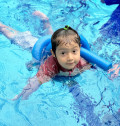
Swimming Kids with Expert and Professional Instructor
2024-08-22 - swimming
Girls Swimming Together with Joyful Movement
2024-08-23 - swimming
The progression from white to orange to yellow belts represents the initial stages of a child's karate journey
2024-08-24 - karate
The 2024 summer camp was designed with these goals in mind, ensuring that every activity
2024-08-25 - swimming
Swimming Pool Training for Kids in the Summer Season
2024-08-26 - swimming
Amazing Kid's Gymnastics in Sharjah and Ajman
2024-08-28 - gymnastic
The Importance of Teaching Swimming to School Kids
2024-08-30 - swimming
Defense is not just about avoiding getting hit it's about creating opportunities
2024-09-01 - Kick-Boxing
Swimming for Kids: The Essential Skills and the Magic of the Water
2024-09-05 - swimming
Before the kick is delivered, the knee must rise to about waist level.
2024-09-06 - karate
Ensuring kids' safety while swimming involves a mix of education, supervision, and the right equipment
2024-09-07 - swimming
All levels artistic gymnastics to advanced artistic gymnastics
2024-09-08 - gymnastic
Kids Swimming Inside Water with Skill Learning
2024-09-09 - swimming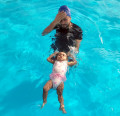
Start Baby Swimming How to Familiarize Your Baby with Water
2024-09-12 - swimming
Girls learning kickboxing should practice lateral movement, forward/backward steps, and quick pivots
2024-09-13 - Kick-Boxing
Muslim Ladies Swimming Skills in Ajman and Sharjah
2024-09-14 - swimming
Karate Belt Exam for Kids to Promote its Belt
2024-09-16 - karate
Swimming to kids can foster both physical and mental fitness social skills
2024-09-18 - swimming
A handstand is a skill in which a person balances their body in an inverted vertical position
2024-09-19 - gymnastic
Blue Belt Performance in Martial Arts Karate
2024-09-20 - karate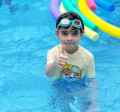
Essential Swimming Skills for 5-Year-Old Kids
2024-09-21 - swimming
How to Split While Learning Kickboxing for Kids
2024-09-22 - Kick-Boxing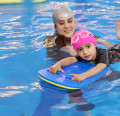
Swimming for Kids Initial Steps to Familiarize with Water
2024-09-23 - swimming
Girls Kickboxing Jab and Cross Learning
2024-09-25 - Kick-Boxing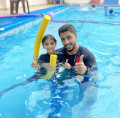
Each Swimming Action Offers a Unique Set of Benefits
2024-09-26 - swimming
Karate is more than just fighting techniques
2024-09-27 - karate
Swimming stands out as an invaluable life skill for kids
2024-09-28 - swimming
Rules for Practicing Gymnastics with an Expert Instructor
2024-09-29 - gymnastic
Lady Swimming Instructor for Girls to Learn Skills
2024-09-30 - swimming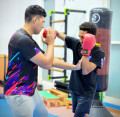
The cross punch is a straight punch thrown with the rear hand usually aimed at the opponent's face or body
2024-10-02 - Kick-Boxing
Swimming for Kids Building Confidence through Water Fun
2024-10-03 - swimming
Martial Arts Karate Blue Belt Performance for Girls and Boys
2024-10-04 - karate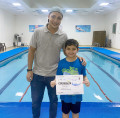
Swimming programs typically feature multiple levels that students must complete
2024-10-05 - swimming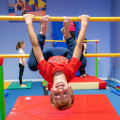
Kids Gymnastics in Ajman and Sharjah Fit Box Center
2024-10-06 - gymnastic
Swimming lessons or joining a swim team provides opportunities to interact and cooperate with peers
2024-10-07 - swimming
Kickboxing involves punching, kicking, and defensive moves that improve strength
2024-10-09 - Kick-Boxing
Beyond physical benefits, learning to swim helps children develop critical thinking and safety awareness
2024-10-10 - swimming
Karate requires precise movements and body control, which helps children improve their coordination and balance
2024-10-11 - karate
Baby swimming lessons are becoming increasingly popular among parents
2024-10-12 - swimming
Today Gymnastics is Scored Using a Complex Two-Pronged System
2024-10-13 - gymnastic
Competitions push them to improve their speed, endurance, and technique, making them stronger swimmers
2024-10-14 - swimming
A Top Priority on Your List Should Be a Quality Pair of Kickboxing Gloves
2024-10-16 - Kick-Boxing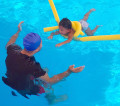
How to Produce Confidence in a Baby for Swimming
2024-10-17 - swimming
A successful performance at the Orange Belt level highlights not only the technical skills
2024-10-18 - karate
Swimming can be both fun and empowering as you build strength and confidence in the water
2024-10-19 - swimming
We Are Proud to Announce the Victory of Fit Box Center Champions
2024-10-19 - karate Champinons
Gymnastics for kids to make easy split action
2024-10-21 - gymnastic
Early swimming lessons can improve kids' motor skills
2024-10-23 - gymnastic
Body Warm-up Before Starting Kickboxing
2024-10-24 - Kick-Boxing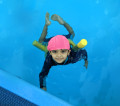
Before diving into lessons, it’s crucial to introduce basic water safety
2024-10-25 - swimming
Consistent training is key for success in karate
2024-10-26 - karate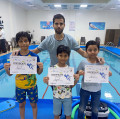
Achieving a Swimming Level 2 Certificate After Completing the Course
2024-10-27 - swimming
Swimming for kids intial steps with confidence
2024-10-28 - swimming
Kids Swimming Competition Stars achieved Medals for his/her performance
2024-10-30 - Swimming Competition
The butterfly stroke is a powerful and dynamic swimming
2024-11-01 - Swimming
Gymnastics brings together elements of dance, athleticism, and daring stunts, creating performances that are both technically impressive and visually stunning
2024-11-03 - gymnastic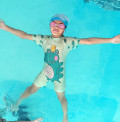
Understanding the Basics of Kids Swimming Backstroke and Standing in Water
2024-11-04 - swimming
Kickboxing for Kids with Professional Trainers
2024-11-06 - Kick-Boxing
Kids Swimming skills with clear swimming pool
2024-11-08 - swimming
Kids Martial Arts Understanding Karate Belts and Skills for Each Level
2024-11-09 - karate
making swimming a rewarding and fun experience
2024-11-10 - swimming
Kickboxing Defense Gear for Kids The Complete Guide
2024-11-11 - Kick-Boxing
Swimming Skills for Kids to Overcome Fear of Water
2024-11-13 - swimming
Gymnastics has benefits that go beyond physical health
2024-11-14 - gymnastic
Flipping in Water for Kids – A Fun and Beneficial Activity
2024-11-16 - swimming
Kids Learning Backstroke Swimming with a Safe Environment
2024-11-17 - swimming
Karate White Belt Performance to Change Belt
2024-11-18 - karate
Swimming Kids with Good Manners to Learn Skills
2024-11-20 - swimming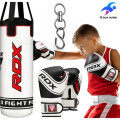
Kickboxing for Kids with Necessary Equipment
2024-11-21 - Kick-Boxing
Swimming Kids in the Pool with Happy Mode
2024-11-22 - swimming
Learning drawing skills is an excellent way for kids to develop their creativity and enhance their thinking abilities
2024-11-23 - drawing
Kids swimming learning with professional instructor
2024-11-24 - swimming
Gymnastics for Kids Learning More Flexible Steps
2024-11-25 - gymnastic
Swimming for Kids with a Professional Way to Learn Skills Fast
2024-11-27 - swimming
While kids can start learning kickboxing as early as 5 or 6 years old
2024-11-28 - swimming
How to Help Kids Learn Swimming Skills
2024-11-29 - swimming
Martial Arts Karate Skills Learning for Kids
2024-11-30 - karate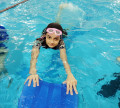
Swimming Skills for Kids Learn Freestyle and Backstroke First
2024-12-01 - swimming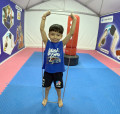
Learning Gymnastics Body Flexibility Movements
2024-12-05 - gymnastic
Kids Swimming Skills for Girls with Ladies Instructor
2024-12-06 - swimming
Kids Arts - Learning to Be Creative for Performance
2024-12-07 - drawing
Winter Camp Activities for Kids to Learn Some Skills
2024-12-08 - winter camp
Swimming Skills for Girls to Provide a Safe Environment
2024-12-09 - swimming
Among the many flexibility challenges in Karate, mastering splits stands out as both rewarding and essential
2024-12-11 - karate
Swimming works all major muscle groups helping kids build strength and stamina
2024-12-12 - swimming
Art is more than just a fun activity for kids it’s a doorway to learning and growth
2024-12-13 - drawing
Girls Swimming Skills with Lady Instructor
2024-12-15 - swimming
Kids Learning Cross and Jab in Kickboxing
2024-12-14 - Kick-Boxing
Gymnastics exercises like splits and bridges promote joint health and mobility
2024-12-16 - gymnastic
Here’s a short description for promoting ladies' swimming skills classes with a female trainer
2024-12-18 - swimming
Essential Swimming Skills for Children
2024-12-19 - swimming
Arts Unlocking Creative Skills for Kids
2024-12-20 - drawing
Swimming Pool Skills for Kids Together with Trainer
2024-12-22 - swimming
Our Academy Karate Champions Taking Part in Competition
2024-12-25 - karate
Swimming Skills Learning to Improve Your Motor Muscles
2024-12-26 - swimming
Martial Arts Karate Special Skills for Kids
2024-12-27 - karate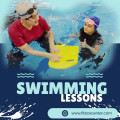
Swimming Lessons for Kids to Learn Essential Skills
2024-12-28 - swimming
Start Kickboxing How to Attack and Defend Yourself
2024-12-29 - Kick-Boxing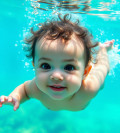
Babies Swimming Skills Development After One Year
2024-12-30 - swimming
Gymnastics Flexible Movements Splits and Jumping
2025-01-02 - gymnastic
Enjoying Swimming Skills in Winter Season for Kids
2025-01-03 - swimming
Martial Arts Karate How to Learn Kicks for Beginners
2025-01-04 - karate
Swimming Skills Learning for Kids to Achieve Dream Objective
2025-01-05 - swimming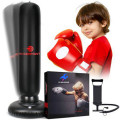
Kickboxing for Kids A Complete Guide with Necessary Equipment
2025-01-06 - swimming
Kids Gymnastics Learning in a Professional Way
2025-01-08 - gymnastic
Ladies Instructor Showing Some Swimming Steps to Kids
2025-01-09 - swimming
Kickboxing learning from beginner to advance level
2025-01-10 - Kick-Boxing
How to Stand on Water Surface Essential Kids’ Swimming Skill
2025-01-11 - swimming
Karate equips kids with skills they’ll use their entire lives
2025-01-12 - karate
Kids Swimming Skills Learning with Professional Trainers
2025-01-16 - swimming
Kids Learn Kickboxing with Professional Instructor
2025-01-19 - Kick-Boxing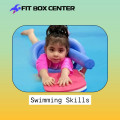
Promoting swimming skills for kids is a great initiative
2025-01-23 - swimming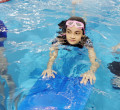
Kids Swimming Skills to Strengthen Motor Muscles and Physical Fitness
2025-01-27 - swimming
Gymnastics the Ultimate Body Workout for Flexible Kids
2025-01-29 - gymnastic
Swimming Skills for Babies to Know Water Waves
2025-02-02 - swimming
Kids’ Certificate Achievements in Martial Arts Karate
2025-02-05 - karate
Kickboxing is a fantastic activity for kids and how they can start their journey
2025-02-08 - Kick-Boxing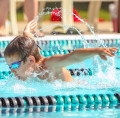
Swimming Skills Learning for Kids to Create Massive Change in Their Life
2025-02-17 - swimming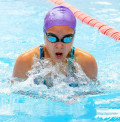
Learn Butterfly Stroke in Swimming Skills
2025-02-22 - swimming
Karate Super Cup Championship 2025 in UAE
2025-04-23 - karate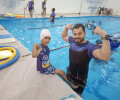
Swimming Skills for Kids with Clear Swimming Pool and Safe
2025-04-27 - swimming
Learn Martial Arts Karate for Kids to Perform Professionally
2025-04-30 - karate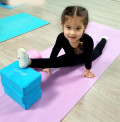
Gymnastics for Kids Playing an Important Role in Enhancing Body Flexibility
2025-05-03 - gymnastic
Learn Professional Swimming for Kids: Basics to Advanced Level
2025-05-08 - swimming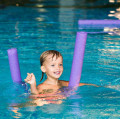
Remember every expert swimmer started just where you are today
2025-05-12 - swimming
Girls Learning Kickboxing to Perform Professionally
2025-05-19 - Kick-Boxing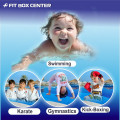
🏊♂️🥋🥊🤸♀️ To Learn Swimming Skills | Karate | Kickboxing | Gymnastics Join Fit Box Center
2025-05-26 - All Activities For Kids
